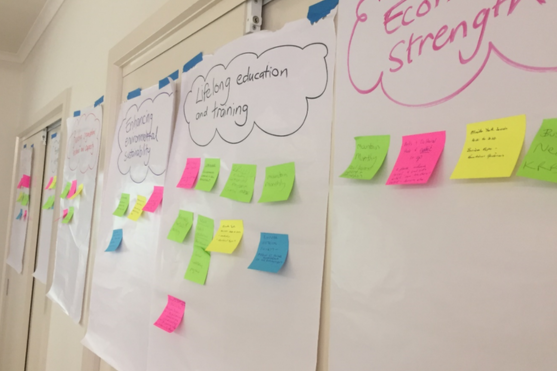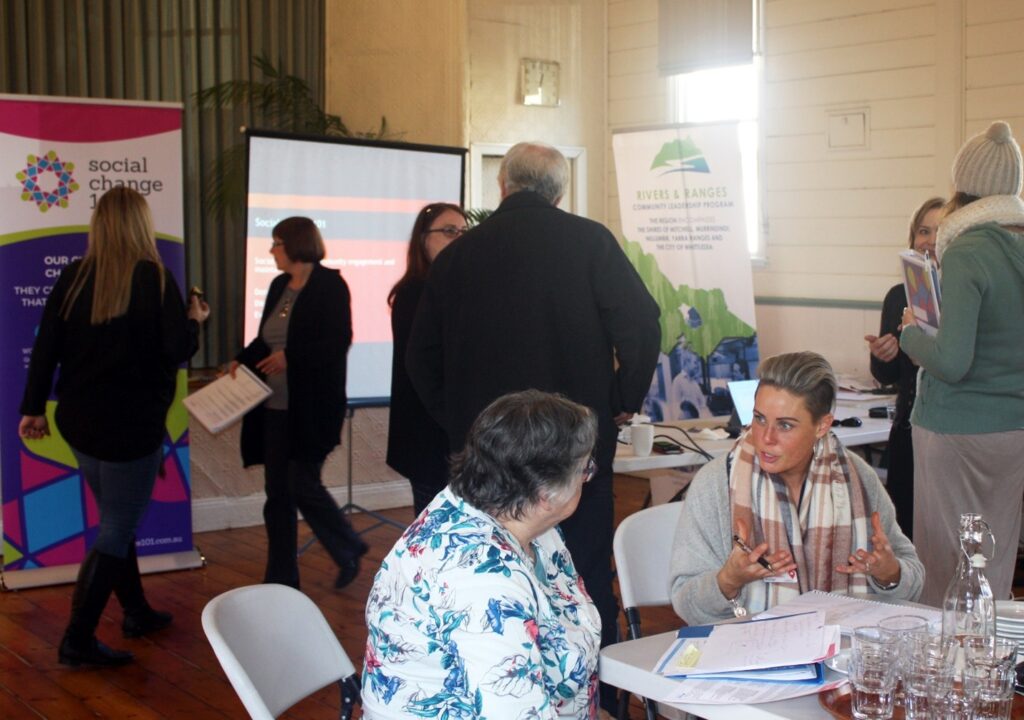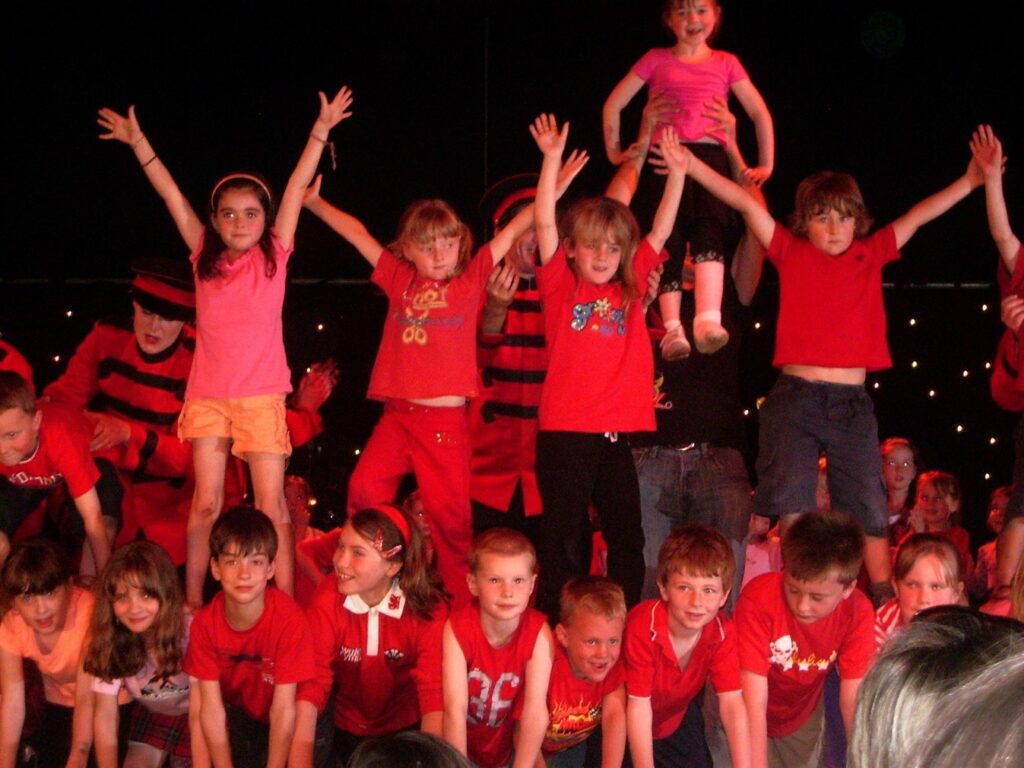Lessons from Black Saturday disaster recovery funding by FRRR

As the Foundation for Rural & Regional Renewal (FRRR) announced this week that it distributed a record $22.5m in grants last financial year – illustrating the ongoing challenges faced by rural communities – we take a look at its earlier work. After the Victorian bushfires in 2009, FRRR distributed $14m in funding to support the medium to long-term recovery of the 76 affected communities. The funding lasted to 2023 and is a great example of some core principles of effective giving.
The need for collaboration
The funds FRRR distributed came from a mix of direct donations to FRRR from its philanthropic and corporate partners and later, funds from the Victorian Bushfire Appeal Fund (VBAF), run by the Victorian Government.
When the fires occurred, FRRR joined a roundtable of donor partners and, given the impact was largely regional, FRRR was well positioned to act as a lead coordinator. Donors came together, pooled resources and worked together to avoid duplication and overlap. FRRR also engaged with government and community groups, involving these groups and emergency management experts in program design and assessment, and engaging regularly over the subsequent 14 years since the bushfires.
The need for simplicity
Disasters are a time of crisis, with communities – especially the volunteers who so often step in and take the lead at a local level – needing to put all their focus on supporting those around them. A key consideration for FRRR was keeping application processes simple and having consistent channels through which community groups could access funding and support.
The need for flexibility and ongoing support
As communities moved from the immediate aftermath into medium to long-term recovery, needs inevitably changed, and so granting and support programs needed to evolve as well. In total, FRRR ran nine streams of support:
| When | Program / Needs | Funding |
| Sept 2009 – Nov 2010 | Repair-Restore-Renew Grants for things like repairing or enhancing community infrastructure (e.g., tanks and generators); enhancing communication (e.g., UHF radios), so people felt better prepared, and creating reflective spaces, such as the Healesville Labyrinth and memorials, to help people process their grief and remember those lost. | $2.1 million via 123 grants |
| 2009-2011 | Donation Accounts Receiving tax deductible donations from people who wished to support organisations delivering particular recovery projects. These partnerships put communities more in control of how funds were directed and enabled them to complete projects they otherwise might not have been able to, such as Narbethong Community Hall. | $3.8 million toward 32 projects |
| September 2011 to June 2014 | Skills, Training, Engagement and Practical Support (STEPS) Building leadership capability and improving the ability of local not-for-profit groups to develop and implement community projects and ensure community groups avoided the impacts of volunteer fatigue. | $0.7 million via 52 grants |
| 2012-2022 | Grants for Resilience and Wellness (GR&W) Community-strengthening and resilience-building projects identified and implemented by impacted communities. | $4.1 million via 283 grants |
| 2015 – 2020 | School and Beyond Removing financial and psychological barriers to participation and completion of study; supporting pathways to vocational training and employment; and assisting with the cost of education and training costs. | $495,000 via 43 grants |
| 2016-2017 | Social Change 101 Help local changemakers learn from leading business and social enterprise experts to gain the skills, knowledge and networks to bring their social enterprise ideas to life. | $280,000 via 2 grants |
| 2015-2021 | Community Group Futures Support and resources for NFPs to consider their viability, sustainability and future roles in their communities, and to strengthen their capabilities to achieve their aspirations. | $0.9M via 75 grants |
| 2015-2021 | Stronger Community Foundations Capacity building resources and funding to assist them to navigate the complexities of grant-making; enhance connections; learn best practices and enhance local positioning. | $200,000 via 26 grants |
| 2013-2023 | GR&W Kinglake Grants to enhance the resilience and wellbeing of Kinglake Ranges communities. | $1.6M via 47 grants |
In the course of recovery, many groups received more than one grant from FRRR, as their priorities changed. Having this ongoing support, which morphed to adapt to their needs, was critical.
The need to back grassroots groups
In many cases, programs overlapped because recovery moved at different rates in communities. The underpinning principle of each program was to support place-based organisations, on the basis that as they are in and of their community, they are best-placed to know what is needed and what response is going to work. FRRR believes that trusting and supporting these local groups, which already have the networks and connections, is critical to recovery over the long-term.
This approach has certainly resonated with community groups and feedback has been positive – no matter whether funding was for: community infrastructure, reflecting on the impacts of what had passed, helping children deal with their feelings or helping volunteers learn ways to care for themselves so they can go on supporting others. Above all, the feedback is that people appreciated the ability to take the time they needed to consider what projects were needed and then to be able to access funding over the medium to long-term.
“The most successful outcome has been providing support and opportunity to strengthen the fabric of our families. Over the three years playgroup has run, [the facilitator] has supported and impacted the lives of so many families in so many ways and the chance for ongoing support though the house and it resources. it has built community with friends and neighbours now catching up during the week, supporting each other and also walking to playgroup together.”

Flowerdale Community House – facilitated playgroup
FRRR is grateful to the many partners and supporters who were part of this collaboratively funded program, especially VBAF, for recognising the importance of supporting grassroots groups over the medium to long-term.
Social Impact 101 was a program that helped local changemakers explore what was involved in setting up a social enterprise, which several groups explored as a way to either address service gaps or bring much-needed economic activity back to their communities.
In the early years following the fires, groups were keen to come together to share their experiences but, in many cases, to simply forget about something else for a while. FRRR funds lots of events and gatherings, including a community choir, as a way to help these communities reconnect.
Young people felt the effects of the bushfires enormously. One of the earliest projects FRRR funded was bringing Circus Oz into the communities, working with local skills to give the children access to some fun experiences and take their, and their parents’ minds, off the impacts of the fires.

The CFA in Arthur’s Creek worked closely with the teachers and students at Strathewen Primary School to find creative ways to address their feelings when they saw fire trucks passing and fire warnings escalated. This award-winning partnership evolved over the years building knowledge and tools that allayed fears and built understanding.
One of the biggest challenges in many communities was working out where to start and what needed to be tackled first. Planning workshops were supported but so too was training designed to build the capacity of local community groups to get clear on their role and how they could best support their community in the longer-term.
This story was first published in the hardcopy edition of Inspiring Stories of Giving volume 1 in 2023.